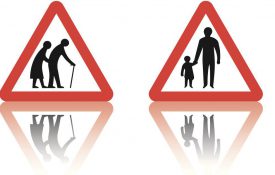-
You Don’t Know as Much as You Think: False Expertise
Scientific American: It is only logical to trust our instincts if we think we know a lot about a subject, right? New research suggests the opposite: self-proclaimed experts are more likely to fall victim to
-
New Research From Psychological Science
Read about the latest research published in Psychological Science: Failure of Intuition When Choosing Whether to Invest in a Single Goal or Split Resources Between Two Goals Alasdair D. F. Clarke and Amelia R. Hunt How
-
New Research From Psychological Science
Read about the latest research published in Psychological Science: The Evolutionary Basis of Honor Cultures Andrzej Nowak, Michele J. Gelfand, Wojciech Borkowski, Dov Cohen, and Ivan Hernandez In honor cultures, people often fight to defend their
-
Couples’ Quality of Life Linked Even When One Partner Dies
When one spouse passes away, his or her characteristics continue to be linked with the surviving spouse’s well-being, according to new research published in Psychological Science, a journal of the Association for Psychological Science. The
-
Basic Ratio Capacity May Serve as Building Block for Math Knowledge
Understanding fractions is a critical mathematical ability, and yet it’s one that continues to confound a lot of people well into adulthood. New research finds evidence for an innate ratio processing ability that may play
-

Older Adults Are Bigger Risk Takers in High-Poverty Countries
People’s propensity to take physical, social, legal, or financial risks typically decreases as they age, but not in countries with high poverty and income inequality, according to new research published in Psychological Science, a journal

